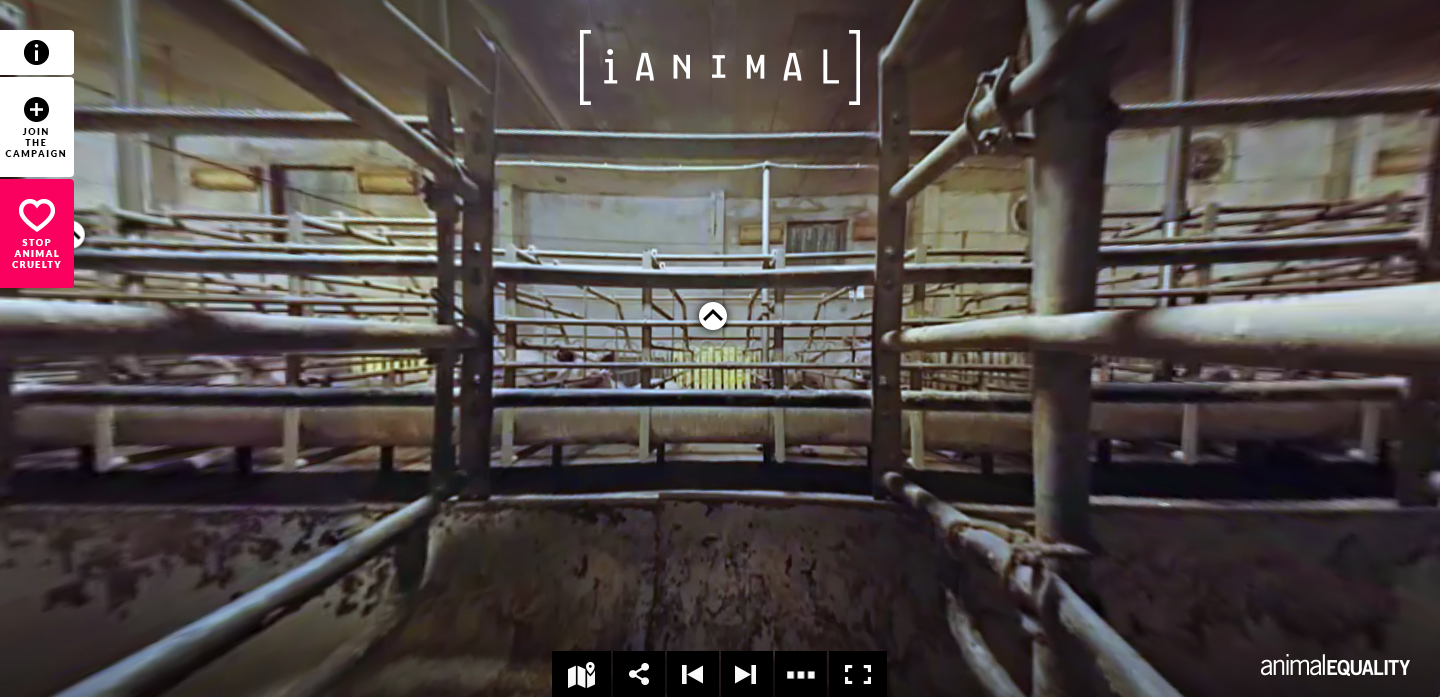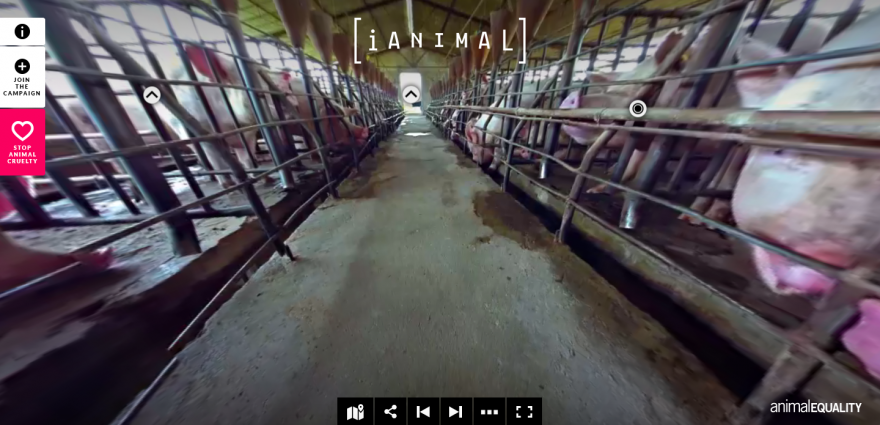Assuming you are not already a vegetarian, what would it take for you to renounce meat? What previously unseen sight would turn you to swear off steak? What heretofore unheard fact would get you to give up fried chicken? Perhaps it would it help if the point were made in brand spankin’ new virtual reality?
The animal welfare charity Animal Equity is betting on the answer to that last question being a resounding yes. Its VR film, iAnimal, places you in a cage with an animal destined for the dining room table and invites you to look around. This whole experience was made for VR headsets but an accompanying interactive video has been uploaded to YouTube.
Narrated by Peter Egan (Shrimpie of Downton Abbey fame), iAnimal Pigs talks you through the life of a pig destined for slaughter. Egan proceeds in the second person: “You were born in a cage. … For the single month that you knew her, your mother was penned against the floor, unable to show affection or comfort you or your siblings.” It’s grim stuff, rendered all the grimmer by the ominous background music.
The footage in iAnimal is indeed harrowing. Suffice it to say that pigs bred for slaughter do not have the greatest of lives. Whether this is really news, however, is up for debate. Indeed, the real question raised by iAnimal is whether the use of virtual reality meaningfully strengthens a rhetorical claim. On this evidence, it’s not clear that one should answer that question in the affirmative.
If virtual reality is capable of engendering empathy, it must also be capable of inflicting a certain amount of emotional harm. The former aspect is the one that gets played up—hey look how this new technology can make you relate with little refugee children—but it is a mere effect of VR’s power to trigger something in the viewer. Indeed, empathy can be the product of fear. That’s iAnimal’s premise: experiencing the terror of a caged animal will make you a more empathetic person. No creative work can be expected to perfectly strike this balance, but it is the existence of both facets that is truly noteworthy. (For the flipside, consider last year’s 9/11-inspired VR experience.)

As a work of activism, iAnimal is willing to stack the deck in favor of a particular conclusion. To wit: Egan’s narration, which constantly tells you what you (the pig?) are feeling. Each statement is plausible—again, it’s hard to doubt that pigs like this life—but it’s not really the VR that’s making you feel these things when Egan declares them in the second person. The balance of showing and telling is off here. VR can bring you closer to the perspective of a pig, but it lacks the formal advancement to see the world through its eyes. iAnimal brings you closer, sure, but it struggles to get across this line.
What exactly does iAnimal teach the viewer that was not previously knowable? Its images of animal suffering are not meaningfully different from the posters I pass on the way from work. The video’s conceit that everything on display is legal is no different than Ted Conover’s Harper’s exposé “The Way Of All Flesh.” iAnimal is powerful, sure, but the only element it adds to existing media narratives is a different camera angle. Maybe that’s enough. “iAnimal brought me back to reality with a jolt,” writes Engadget’s Aaron Souppouris.
But what if that isn’t enough? What if seeing the same story from a slightly closer perspective doesn’t finally change your mind? Where does that leave us? iAnimal takes you to the logical conclusion of the “life sucks for animals” argument, but even if that persuades a few more people it ultimately feels like more of a dead end. If the posters and the videos and now this VR thing all fail at their stated goal, it’s hard to believe that actually looking through the eyes of a pig will make a difference. Virtual reality’s rhetorical power may not allow us to tell new or meaningfully better stories; it may just allow us to proclaim our existing positions with even more vehemence.
